For many years Eurasian Harm Reduction Association has been actively supporting the global initiative and activities of “Support. Don’t punish!” campaign, which is celebrating its 10th anniversary this year.
The year 2022 became no exception for us. Joining the broad coalition for drug policy reform, decriminalization and community advocacy, which includes over 280 cities from 91 countries, EHRA has supported with small grants[1] 4 harm reduction organizations of activists in Kazakhstan, Lithuania, Montenegro and Tajikistan.
The small funds that EHRA allocated to each organization helped each of them to undertake their own unique activities aimed at community advocacy, drug policy reform, and decriminalization of people who use drugs in these countries.
[1] Small grants are provided by the EHRA Secretariat as part of the project
‘Ending Inequalities for People who Use Drugs: Strengthening Harm Reduction to Elevate Rights, Health and Capacity” of the International Harm Reduction Consortium.
Kazakhstan
Activists from NGO “Nursemin” located in Karaganda decided to create short video messages from people who use drugs from different cities in Kazakhstan. In these messages, people say based on personal experience that punishment does not work, and that people need support and assistance in accessing medical, social and legal services primarily. Also, the messages from medical professionals and psychologists assisting the campaign were recorded to support these appeals.
The video was shared on the most popular social networks and messengers (VKontakte, Instagram, Twitter Facebook YouTube Telegram, TikTok) as well as on advertising banners over the city.
“We have great faith that the voice of the community has been heard, including the decisions making people,” – hopes Natalia, the action organizer and head of NGO “Nursenim”.
Lithuania
Activists and volunteers from the youth organization “Young Wave” organized public presentation of the film “Breaking the Taboo” in Vilnius. The documentary, made in the UK and Brazil, argues that the common struggle of world states against drugs has failed because, despite the efforts of the UN, the situation has only been getting worse over the past 40 years. Instead of reducing, drugs traffic has been growing over time, and new drugs have become more available and cheaper. After watching the film, the organizers initiated a discussion during which the participants talk about the ideas and conclusions presented in the film. During the discussion it was said that in order to fundamentally solve the issue, there is no need to fight with people, but it is drug policy that needs to be changed towards humanization.
“We were able to involve 20 young people to watch the film, and the particularly useful thing was that these people took part in the discussion around the idea voiced in the film: liberalizing of the drug policy is one of the most effective tools for harm reduction.” said Linas, one of the event organizers.
Montenegro
The community of people who use drugs is traditionally at the centre of events organized by the NGO Juventas in Podgorica. In the memory of Davor Karadzic, a Montenegro harm reduction activist who died from COVID-19 and was one of the initiators of the harm reduction programme in Montenegro, the workers of the harm reduction centre initiated mural creation with his image on the front wall of the Juventas NGO centre in Podgorica. The community was actively involved in preparing this mural. Unfortunately, due to the abnormal heat in Podgorica, work on the mural had to be halted, but very soon people of the city will be able to see the image of Davor, who has become a symbolic figure in the fight against the punitive drug policy in Montenegro.
Also, during the month of June, meetings with the community were organized to discuss how existing legal solutions are affecting the lives of people who use drugs and what changes in drug policy people would like to see.
“During these meetings, people from the community were very keen to give their opinions as well as suggestions on how certain things could be improved, especially those related to legal provisions that either do not exist in Montenegro or should be changed. By involving people from the community, we aim to improve cooperation with the community, to help the community make its voice heard.”, stressed Maria, event coordinator, Juventas Centre officer.
Tajikistan
On June 26, the NGO SPIN Plus held a series of meetings with law enforcement officials in Dushanbe. The events were held under the slogan “Treatment, not punishment!” The meetings were attended by more than 50 people from the district police, the Drug Traffic Department of Ministry of Internal Affairs, as well as staff and volunteers from SPIN Plus. During the event the information about the work of Harm Reduction Programme in Tajikistan was presented. Also, a separate session highlighted the work of the opioid agonist therapy programme. There was a session on opioid overdose prevention and treatment.
Information materials in the form of booklets, brochures and posters were handed over to the staff of Firdavsi district police and Drug Traffic Department. Also first aid kits with first aid items specially prepared and procured by UNDP in Tajikistan were handed over. Naloxone 10 ampoules, syringes and condoms were added to the first aid kit.
“The event was held positively. During the discussion, the police officers asked many questions about the work of the harm reduction programme, the use of naloxone, HIV prevention and treatment measures in Tajikistan. All the questions were adequately answered. It was important that we were able to reach an agreement on regular interaction with Drug Traffic Department officers directly and local police officers to conduct informational and awareness-raising activities, as well as to equip them with relevant information and prophylactic materials”. – Pulod, head of the NGO SPIN Plus, shared the results of the event.

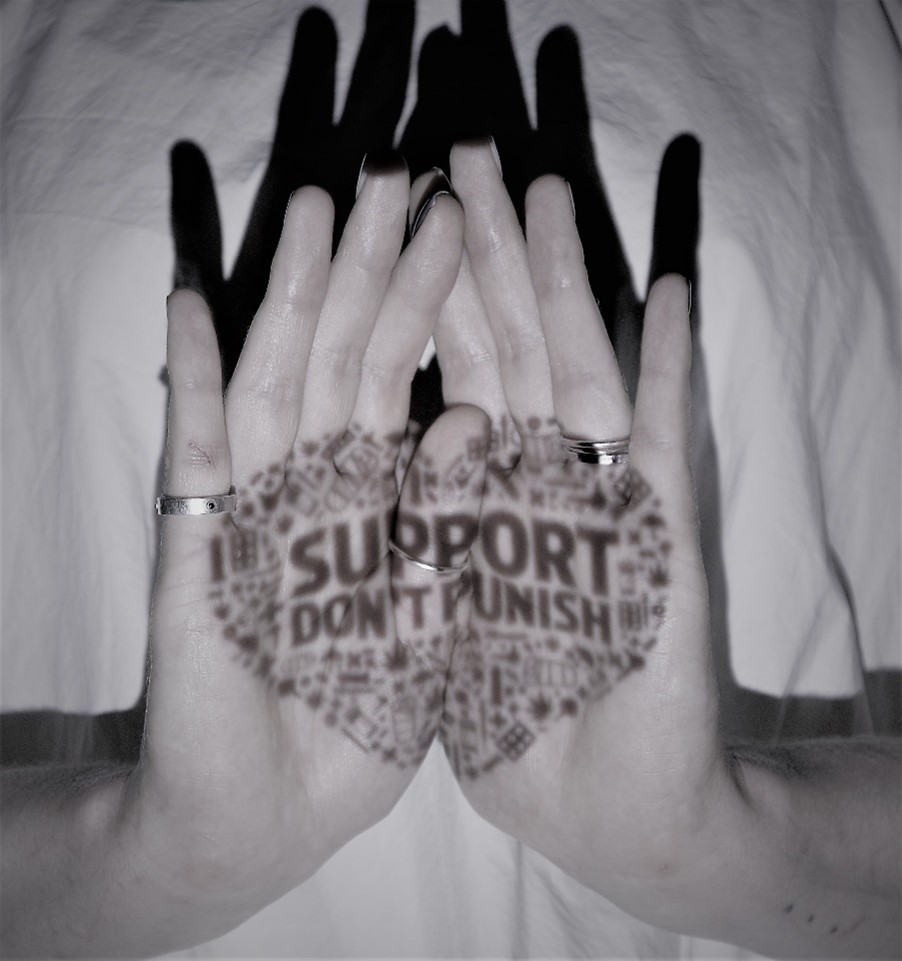
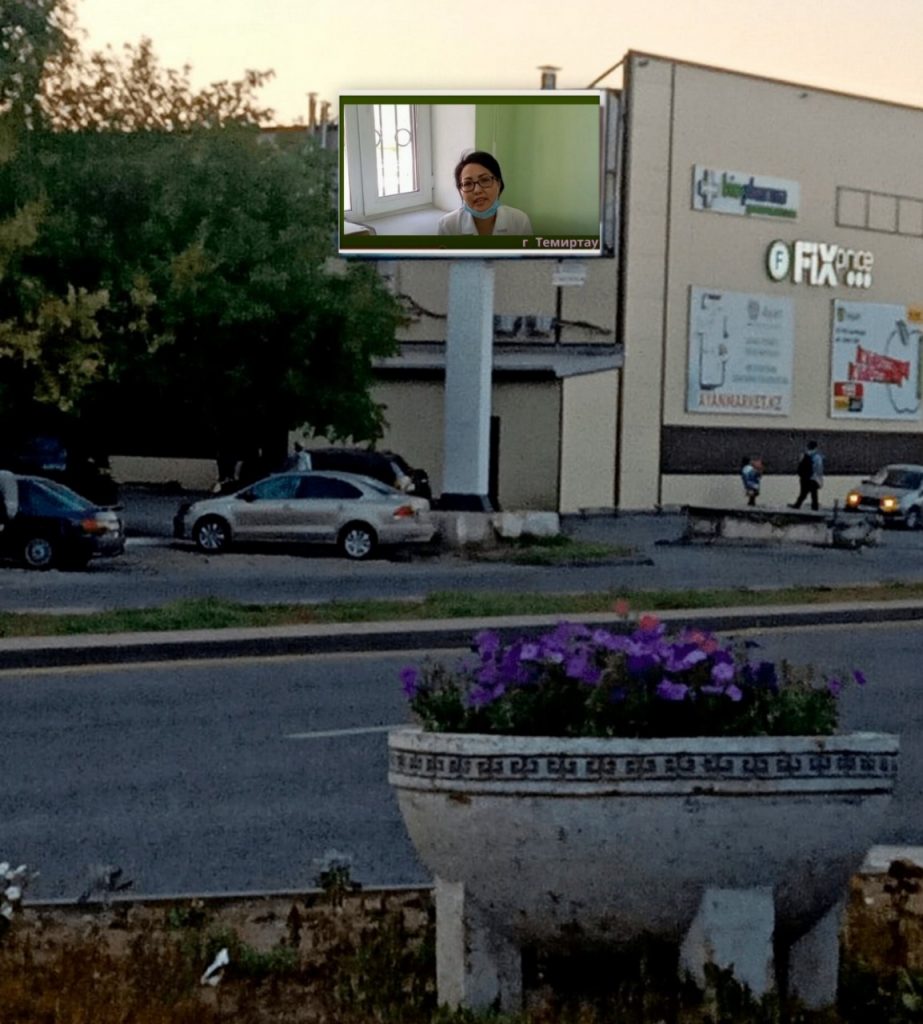
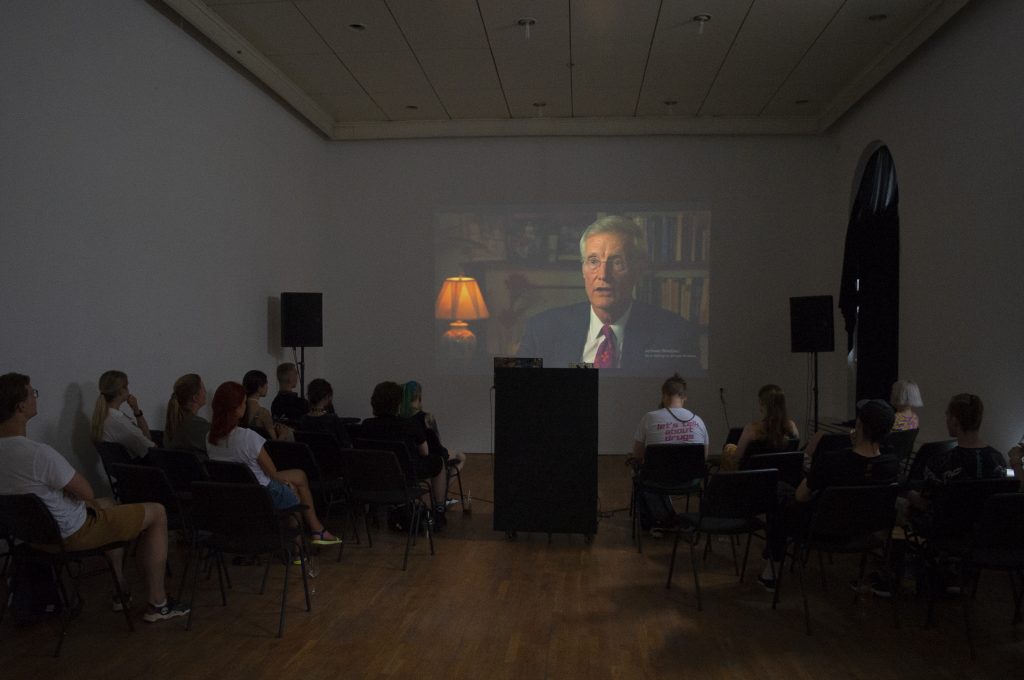
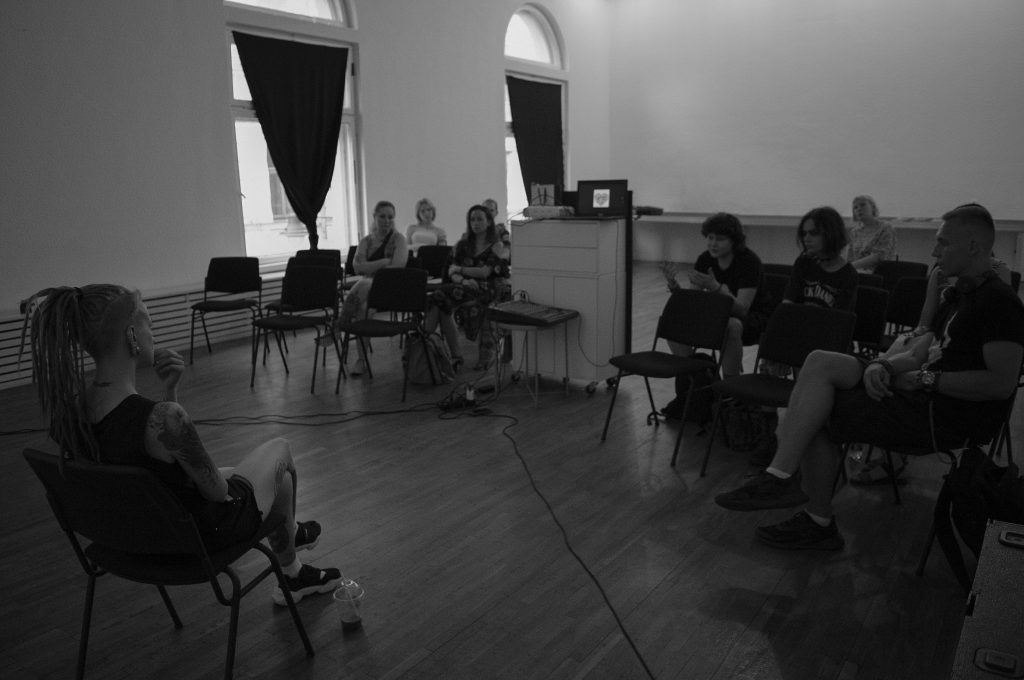
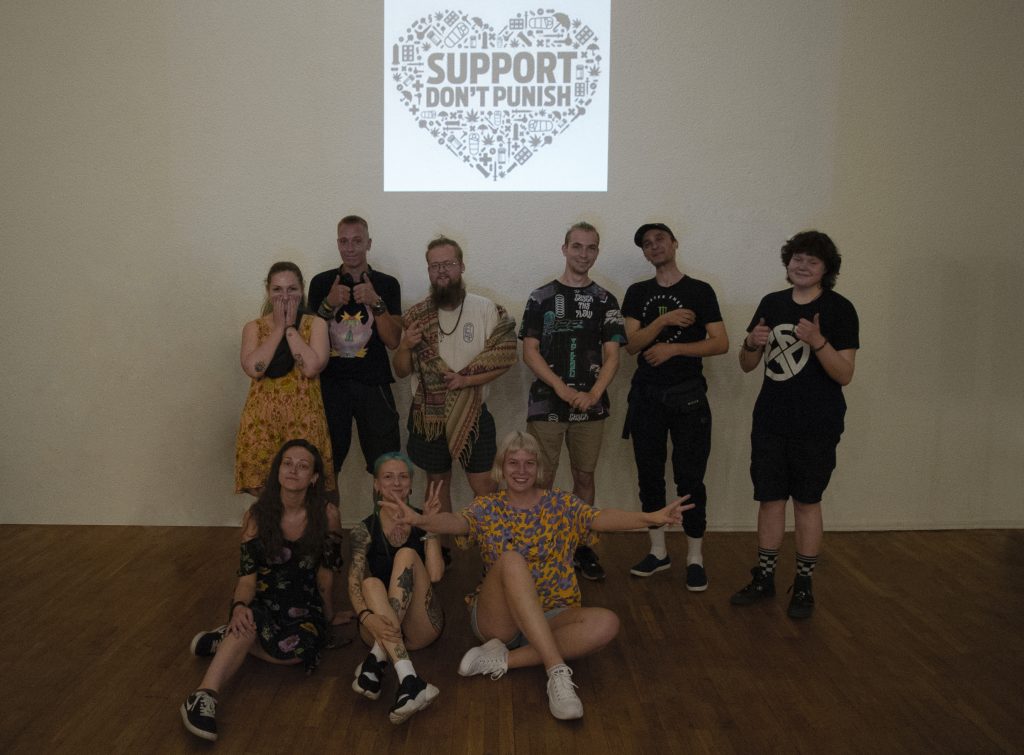
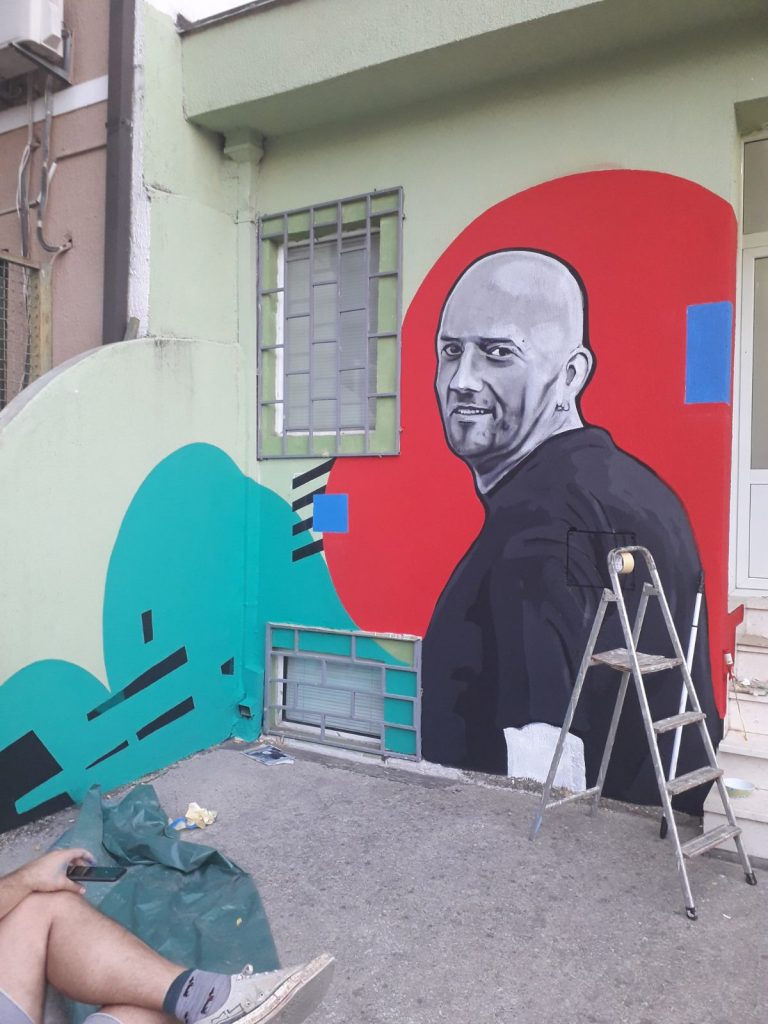
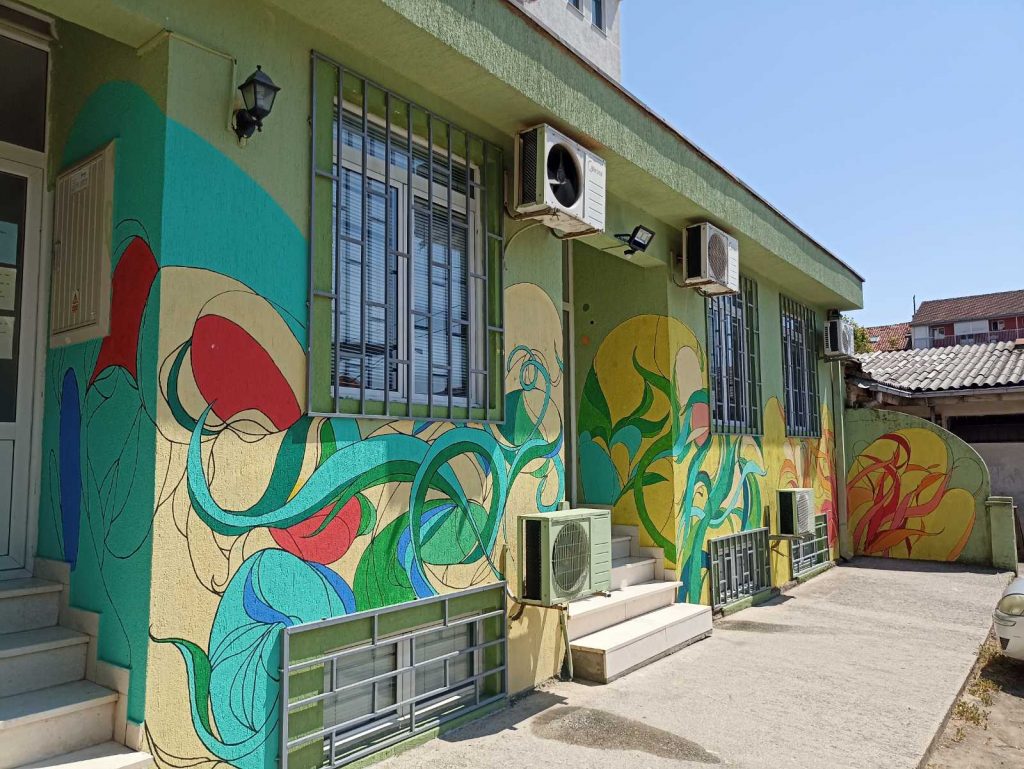
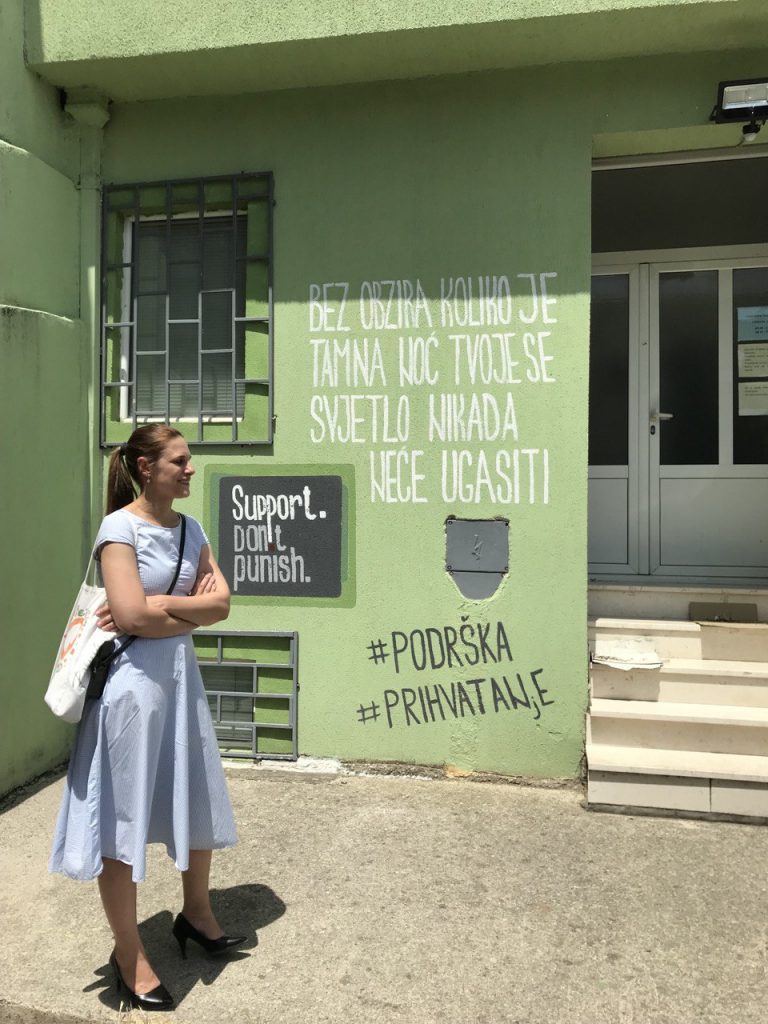
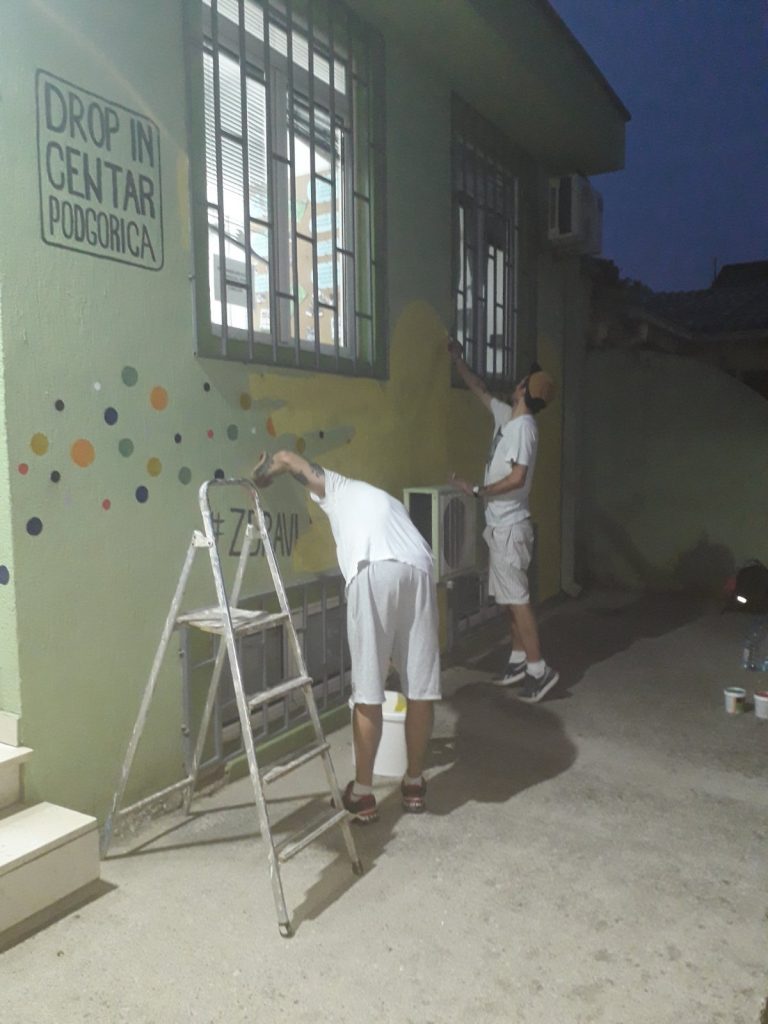
 Looking at me attentively, Stephen went on: “My country has done very well with offering OST (methadone, buprenorphine) but everyone knows more MUST be done. People need easy access and doses that are suitable to them. There will be a small ‘Heroin Assisted Treatment’ program beginning in September 2019. and in time, if it is allowed to grow, it will change so many lives for the better; IT WILL SAVE LIVES.”
Looking at me attentively, Stephen went on: “My country has done very well with offering OST (methadone, buprenorphine) but everyone knows more MUST be done. People need easy access and doses that are suitable to them. There will be a small ‘Heroin Assisted Treatment’ program beginning in September 2019. and in time, if it is allowed to grow, it will change so many lives for the better; IT WILL SAVE LIVES.” Railway station. Stephen and Nicole’s birthday present – Scottish red and green check scarf – kept me warm. Standing at the platform, we gave each other goodbye hugs, listening to our heartbeats. Making myself comfortable in my seat with a book, I realized that my eyes were constantly coming back to the yellow bracelet. The sounds of the train, its rhythmic swing combined with polite and quiet travel companions – it all gave me a chance to think why it happened like this: I had 30 years of opoiod use behind me, but Naloxone became part of the things I always consciously carry with me only three days ago.
Railway station. Stephen and Nicole’s birthday present – Scottish red and green check scarf – kept me warm. Standing at the platform, we gave each other goodbye hugs, listening to our heartbeats. Making myself comfortable in my seat with a book, I realized that my eyes were constantly coming back to the yellow bracelet. The sounds of the train, its rhythmic swing combined with polite and quiet travel companions – it all gave me a chance to think why it happened like this: I had 30 years of opoiod use behind me, but Naloxone became part of the things I always consciously carry with me only three days ago. The yellow box, which came to me from Scotland, has already renewed its stock of Naloxone and now has other helpful things as well. The last thing I got from a friend of mine were tablets, which help in case of MDMA overdose. In the center, there is a syringe with Naloxone.
The yellow box, which came to me from Scotland, has already renewed its stock of Naloxone and now has other helpful things as well. The last thing I got from a friend of mine were tablets, which help in case of MDMA overdose. In the center, there is a syringe with Naloxone. 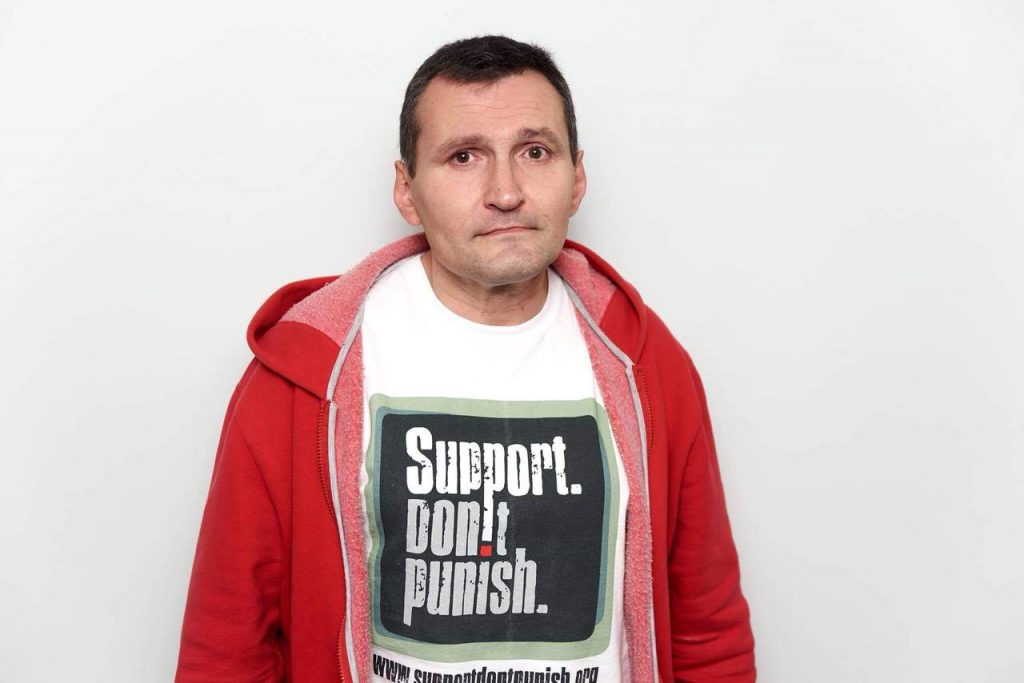
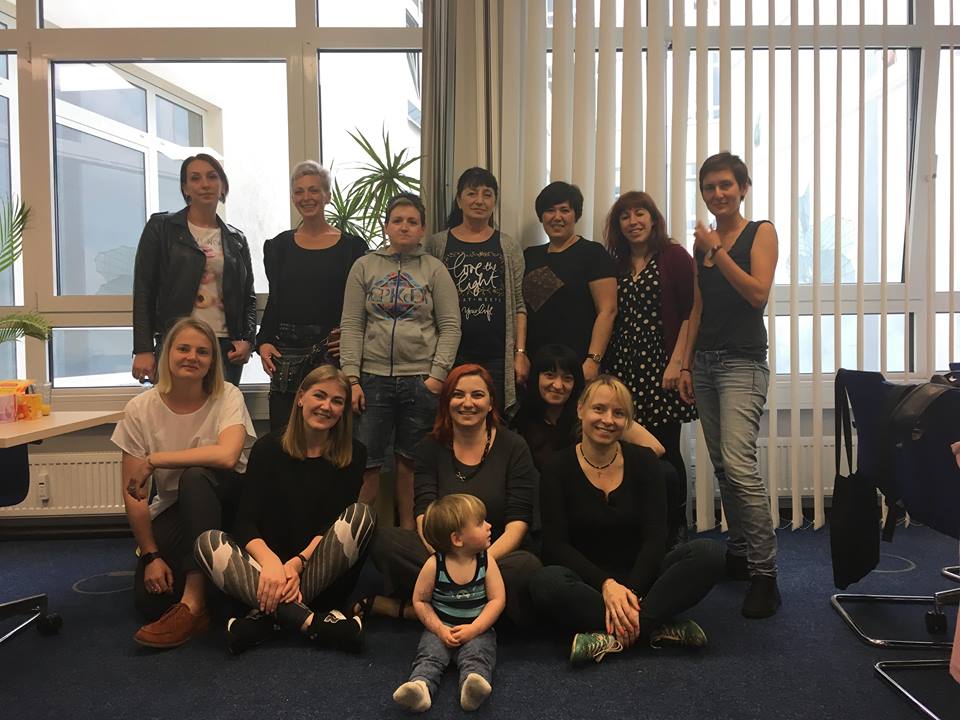
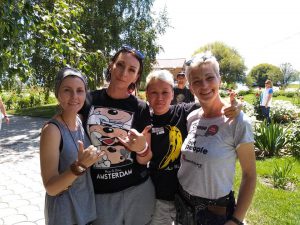 “Don’t push us into the corner or we will shoot”. Who pushes people into the corner introducing new Criminal Codes under the guise of “humane reforms” and reducing the prison population in Kyrgyzstan while three grams of hashish are subject to a fine of 4000 dollars?! If you don’t pay the fine they’ll put you in prison for up to 5 years. And most importantly, how can we change the vector of drug policy toward regulation of psychoactive substances, safe drug use with adequate restrictions that keep people in the legal field and give possibilities of comfortable drug use?
“Don’t push us into the corner or we will shoot”. Who pushes people into the corner introducing new Criminal Codes under the guise of “humane reforms” and reducing the prison population in Kyrgyzstan while three grams of hashish are subject to a fine of 4000 dollars?! If you don’t pay the fine they’ll put you in prison for up to 5 years. And most importantly, how can we change the vector of drug policy toward regulation of psychoactive substances, safe drug use with adequate restrictions that keep people in the legal field and give possibilities of comfortable drug use?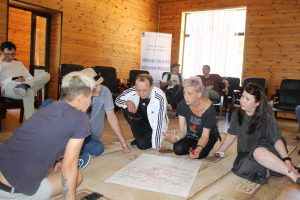 The country is currently reviewing the Government Regulation № 543 on drug quantities: small, large and extremely large. Small quantity qualifies for a misconduct, while large and extremely large quantities are considered a criminal offense. Small quantities will remain in the Regulation, for example, a small quantity for heroin is up to 1 gram. The big step forward is that the expertise on the drug purity was included to the Regulation. Basically, it’s a good topic to consider. If a person is detained with 1.5 grams of a drug, the person perpetrates the Criminal Code, which means 4 000 dollars fine or a prison. Then, the expertise might show that the pure substance is less than one gram, this means the person breaks the law of the Misdemeanor Code and can be subject to a fine of 800 dollars and a restriction of freedom for 6 months (the person would also be banned from visiting certain places or will be subjected to treatment according to their consent and at their expense). The problem in this case is that the actual situation on the drug stage is not taken into account, where the minimum purchase of heroin begins at five or ten grams.
The country is currently reviewing the Government Regulation № 543 on drug quantities: small, large and extremely large. Small quantity qualifies for a misconduct, while large and extremely large quantities are considered a criminal offense. Small quantities will remain in the Regulation, for example, a small quantity for heroin is up to 1 gram. The big step forward is that the expertise on the drug purity was included to the Regulation. Basically, it’s a good topic to consider. If a person is detained with 1.5 grams of a drug, the person perpetrates the Criminal Code, which means 4 000 dollars fine or a prison. Then, the expertise might show that the pure substance is less than one gram, this means the person breaks the law of the Misdemeanor Code and can be subject to a fine of 800 dollars and a restriction of freedom for 6 months (the person would also be banned from visiting certain places or will be subjected to treatment according to their consent and at their expense). The problem in this case is that the actual situation on the drug stage is not taken into account, where the minimum purchase of heroin begins at five or ten grams.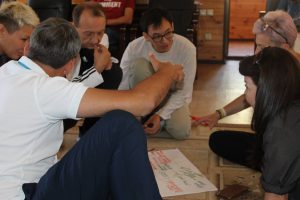 “Fine for freedom” (c). People who feel and understand their freedom may create such slogans. And we know that our message will be convincing only if we accept ourselves as people for whom the use of psychoactive substances is a standard of living. We should expose to the thinking people the causal relationship between bribes, provocations, blackmail by policy and suicide, homelessness, pain and all negative consequences of repressive drug policies, which could have been prevented.
“Fine for freedom” (c). People who feel and understand their freedom may create such slogans. And we know that our message will be convincing only if we accept ourselves as people for whom the use of psychoactive substances is a standard of living. We should expose to the thinking people the causal relationship between bribes, provocations, blackmail by policy and suicide, homelessness, pain and all negative consequences of repressive drug policies, which could have been prevented.